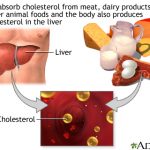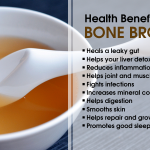Effect of Low Potassium on Arteries Leads to Strokes
What can happen if your potassium level is too low?
A low potassium level has many causes but usually results from vomiting, diarrhea, adrenal gland disorders, or use of diuretics. A low potassium level can make muscles feel weak, cramp, twitch, or even become paralyzed, and abnormal heart rhythms may develop.
Hypokalemia (Low Level of Potassium in the Blood) – Merck Manuals
merckmanuals.com
https://www.merckmanuals.com › electrolyte-balance › h…
###
Can low potassium cause atrial fibrillation?
Low serum potassium levels are associated with the risk of atrial fibrillation.Jul 29, 2020
Low serum potassium levels are associated with the risk of atrial …
nih.gov
https://pubmed.ncbi.nlm.nih.gov › …
Sear
Potassium is likely safe for most people when taken by mouth in amounts of up to 100 mEq (3900 mg) of total potassium daily. In some people, potassium can cause stomach upset, nausea, diarrhea, vomiting, or intestinal gas.
A recent study provides early evidence that increased potassium may help prevent hardening of the arteries, which contributes to serious heart-related conditions. Hardening of the arteries causes plaques of fat, cholesterol, calcium, and other substances that reduce blood flow.Jan 25, 2018
Can potassium help your heart? – NIH MedlinePlus Magazine
Does low potassium affect memory?
Getting Too Much Salt, Not Enough Potassium May Increase Your Risk of Cognitive Decline A new study showed higher dietary sodium was associated with a higher risk of memory deterioration, and higher potassium intake was associated with higher cognitive function.Dec 9, 2022
Cognitive Decline: High Sodium, Low Potassium Diet May Increase Risk
Can low potassium cause brain fog?
Lack of potassium can affect normal electrical activity occurring in your brain and may make you suffer from brain fog. It becomes difficult to concentrate and leads to sluggishness. A lack of potassium, which is often accompanied by low sodium levels, hampers the kidneys’ ability to retain water.Feb 19, 2019
How do you know if you have potassium deficiency?
What are the symptoms of extremely low potassium?
What are the symptoms of hypokalemia?
Constipation.
Heart palpitations.
Extreme tiredness (fatigue).
Muscle weakness and spasms.
Tingling and numbness.
May 10, 2022
Low Potassium Level Causes (Hypokalemia) – Cleveland Clinic
clevelandclinic.org
https://my.clevelandclinic.org › health › diseases › 1774…
Search for: What are the symptoms of extremely low potassium?
Does potassium clear arteries?
Dietary potassium regulates calcification of arteries. Low dietary potassium leads to calcified arteries and aortic stiffness, while increased dietary potassium alleviates those undesirable effects in a mouse model, suggesting dietary potassium may protect against heart disease and death from heart disease in humans.Oct 5, 2017
A need for bananas? Dietary potassium regulates calcification of …
uab.edu
https://www.uab.edu › news › research › item › 8773-a-…
Search for: Does potassium clear arteries?
Low levels of potassium in the diet can cause calcification and stiffness of arteries.
Low levels of potassium have been linked to high blood pressure, heart disease, and stroke in people. The new findings could lead to better methods of prevention and treatment.
Some medical conditions, medications, or excess salt in the diet can cause low potassium, in which case taking potassium supplements or perscriptions can reduce the risk of cardiovascular diseases, such as high blood pressure, heart disease, and stroke.
Proper potassium levels help prevent vascular calcification, the buildup of calcium in the smooth muscle cells within arteries. Vascular calcification contributes to atherosclerosis, also known as hardening of the arteries. This is a serious disease in which plaques of fat, cholesterol, calcium, and other substances cause blockages and diminish blood flow.
A research team led by Dr. Yabing Chen at the University of Alabama at Birmingham and the Birmingham VA Medical Center set out to discover how dietary potassium affects the vascular calcification process. The study was supported in part by the NIH’s National Heart, Lung, and Blood Institute (NHLBI) and National Institute of Diabetes and Digestive and Kidney Diseases (NIDDK). Results were published on October 5, 2017, in JCI Insight.
For 30 weeks, the researchers fed three groups of atherosclerosis-prone male mice a high-fat, high-cholesterol diet that contained normal, low, or high levels of potassium. Using tissue staining and ultrasound imaging methods, the team showed that mice fed a low-potassium diet had increased vascular calcification and artery stiffness. Conversely, a high-potassium diet reduced calcification and stiffness. Using smooth muscle cell cultures, the team confirmed that low potassium enhanced vascular calcification, and high potassium inhibited it
Next, the research team analyzed changes in proteins made by vascular smooth muscle cells when the potassium level was low. They found large increases in proteins often associated with bone cells and decreases in those associated with smooth muscle cells. This rise in bone-associated proteins suggests that low potassium directly affects the calcification of smooth muscle cells.
The team also showed that low potassium increased the calcium level within smooth muscle cells. Higher levels of calcium led to activation of a protein called CREB (cAMP response element-binding protein). Smooth muscle cell calcification could be blocked by inhibiting the activity of CREB. This suggested that CREB is a critical part of the calcification process when the potassium level is low. CREB activation was linked to increased autophagy, the process by which waste within the cell is broken down and recycled. Further work will be needed to define the role of autophagy in vascular calcification and artery stiffness.
“The findings demonstrate the benefit of adequate potassium supplementation on prevention of vascular calcification in atherosclerosis-prone mice, and the adverse effect of low potassium intake.”
##
In potassium depleted muscle, the lack of potassium prevents adequate widening of blood vessels, resulting in decreased muscle blood flow, cramps and the destruction of skeletal muscle.
https://rarediseases.org › rare-diseases › hypokalemia
Hypokalemia is associated with increased risk of arrhythmia in patients with cardiovascular disease, as well as increased all-cause mortality, cardiovascular mortality and heart failure mortality by up to 10-fold.
Hypokalemia and sudden cardiac death – PMC – NCBI







Leave a Reply